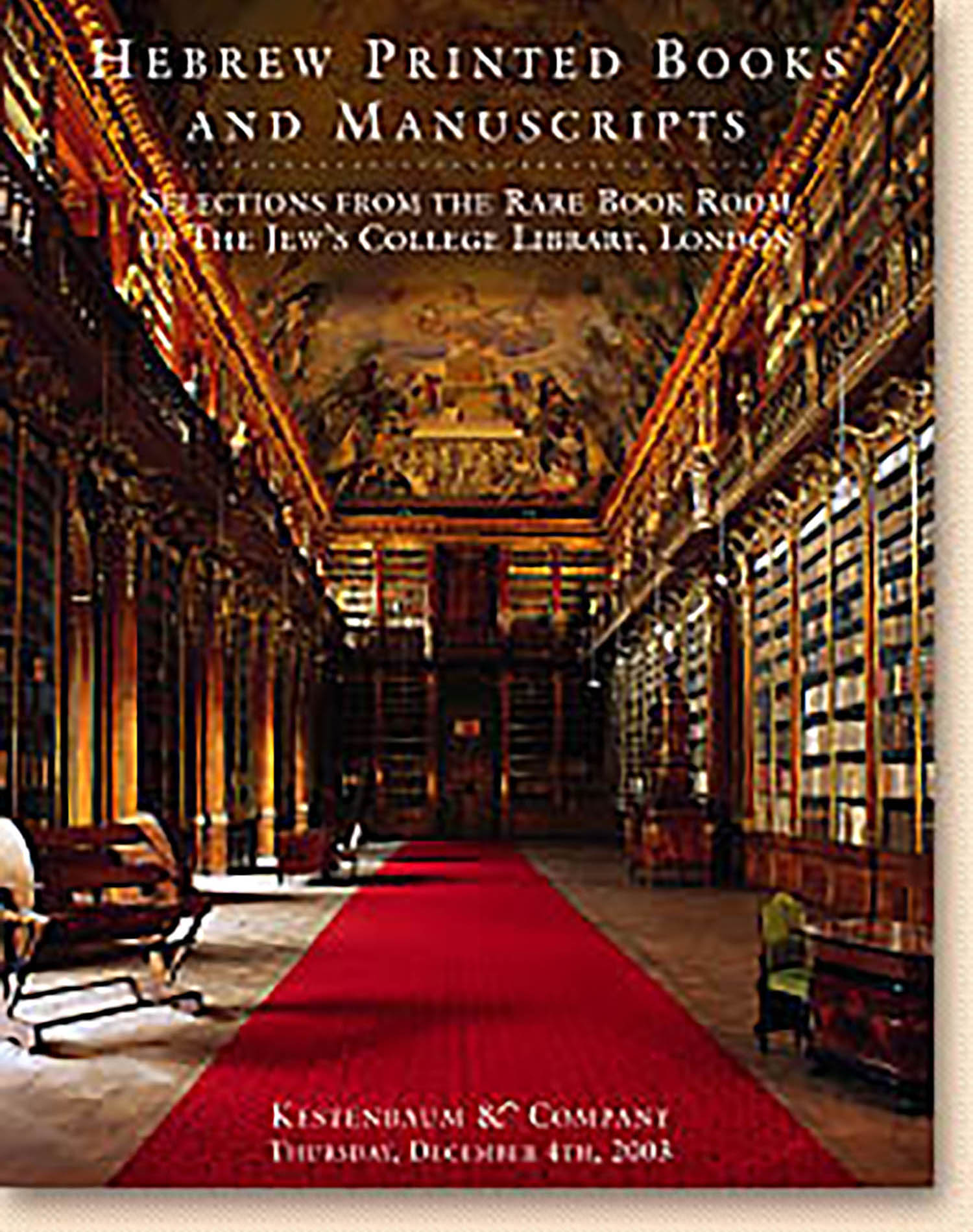(KABBALAH)

AUCTION 21 |
Thursday, December 04th,
2003 at 1:00
Kestenbaum & Company Holds Inaugural Auction of Hebrew Printed Books & Manuscripts at Their New Galleries
Lot 124
(KABBALAH)
v.p: v.d
Est: $1,000 - $1,500
PRICE REALIZED $1,000
According to Fuks, the text of Sepher Yetzirah should be followed by a page of errata (p. 209), missing in our copy.
The commentary attributed to “Rabbi Abraham” (RABaD of Posqui`eres) is really the work of another. This was already pointed out by Rabbi Hayim Vital back in the sixteenth century. Modern research has uncovered the true identity of the author: R. Joseph ben Shalom Ashkenazi. The latter resided in Barcelona at the beginning of the fourteenth century. See G. Scholem in Kiryat Sefer IV, pp. 286-302; idem, Major Trends in Jewish Mysticism (New York, 1967), p. 407, n. 137.
According to the title page,the translator Rittangel (1606?-1652?) was Professor-extraordinary of oriental languages in the University of Königsberg. He seems to have changed his religious profession several times over the years, though there is some question whether he was actually an apostate Jew. At the same time he published his edition of Sepher Yetzirah in 1642, he entered into a polemic with a Spanish Jew of Amsterdam concerning the meaning of the “Shiloh” passage of Genesis 49:10. As could be expected, Rittangel argued for a Christological interpretation. Typical of the Christian kabbalists, the authority of Rabbi Simeon bar Yohai, author of the Zohar, was invoked for Christian polemical purposes. See Oliver Shaw Rankin, Jewish Religious Polemic (Ktav, 1970), pp. 89-106.
The author of the second work, Wilhelm Schickard was a professor of Sacred Hebrew Literature at the academy of Tübingen. He produced several Hebrew philological studies. See Julius Fürst, Bibliotheca Judaica III (Hildesheim, 1960), pp. 270-271. Mishpat ha-Melech, a Latin work interspersed with copious Hebrew quotations, is a study of the laws of kings governing a Hebrew state, culled from the rabbinic literature, Talmud and Maimonides’ code, Hil. Melachim. Elisheva Carlebach sees the book’s subtitle “E tenebris rabbinicis erutum & luci donatum” (plucked from rabbinic darkness and exposed to light) as symptomatic of the mindset of the Christian Hebraists of the era, who rather than approaching Jewish learning with academic impartiality, viewed themselves as conspiratologists uncovering some sinister plot. E. Carlebach, Divided Souls (New Haven, 2001), p. 201.
